Basic Activities
Preparation of media and plate for bacteriology and media for animal cell culture, supply of restriction and modifying enzymes, supply of several products and reagents for Molecular Biology and ISH experiments, preparation of competent cells for bacterial transformation etc. Besides the Service handles the provisioning of normal and modified synthetic oligonucleotides satisfying all the needs of the Institute.
Specialistic Activities
Specialistic activities includes a portfolio of services with high technological content, not feasible to individual laboratories, which require the use of high cost equipment in terms of purchasing and management, and that require a specific in-depth know-how. The centralization of these technologies allow a optimized management, which makes them accessible, at a competitive cost, to all the laboratories of the Institute and to the entire scientific community. The technological offer, in fact, besides being attractive to the scientific community has allowed the participation of the Service as a technology platform in various Network of Excellence like Marine Genomics or the Assemble project.
Sequencing
DNA automated capillary electrophoresis sequencing still remains a major and indispensable tools for the study of nucleic acids. Sequences produced are ~ 650 bases long in average with more than 97.5% accuracy, starting from plasmids, PCR fragments, phages. The potentiality of the system endowed by the Service is more than 1000 sequences/day and it can support high productivity projects too. The Service at the moment produces more than 15'000 sequences per year.
Genotipizzazione
About 6,000 samples analysed per year, mainly for genetic population studies of algae.
Genotyping is the process that allows to identify the genotype of an organism by biological testing (genotype testing). There are several techniques that can be used for genotyping mainly with a multi-locus or single-locus approach. The service offers three different analytical approaches:
- Microsatellites (single-locus).
Fragments analysis is achieved by capillary electrophoresis and applied to population genetics studies, primarily on aquatic plants (seagrasses) and algae. We analyze an average of 6000 samples per year. - SNiPs, analysis of polymorphism in single base (single-locus). SNiPs analysis is realized at the SBM using the Snapshot technology that allows the analysis, through capillary electrophoresis, of any samples with the use of only one specific oligonucleotide.
- AFLP, amplified fragment lenght polymorphism (multi-locus). The detection is realized at SBM through capillary electrophoresis.
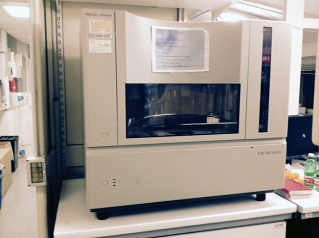
Instrumentation:
Applied Biosystems (Life Technologies) 3730 DNA Analyzer 48 capillaries - Read more
RealTime qPCR
The Real-Time qPCR (or quantitative PCR) is a technology that in recent years it grew rapidly and now constitutes a gold-standard in gene expression study. The Service supports the Institute's laboratories in experiments design, samples running and, if required, data analysis.
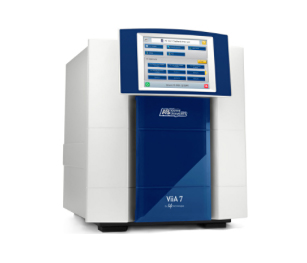 Instrumentation:
Instrumentation:
Applied Biosystems (Life Technologies) ViiA7 384 wells format. - Read more
Sample QC Bioanalyzer
For samples quality control of the of nucleic acids one of the technologies most widely used and recognized is the microfluidic chip analysis made by Bioanalyzer (Agilent Technologies). The service was equipped in 2010 with this instrumentation and offers the analysis of samples and advice on the results interpretation.
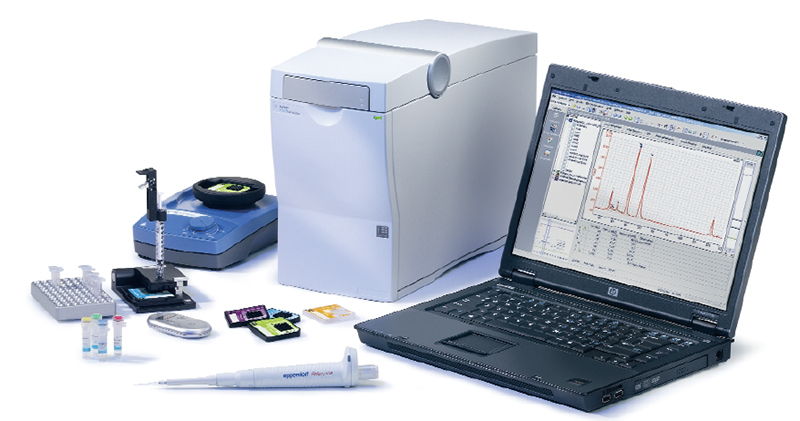 Instrumentation:
Instrumentation:
Agilent Bioanalyzer 2100 - Read more
Lab. Automation and High throughput projects
The Service is equipped with a robotic system able to realize high productivity projects for the research activities that needs, in brief times, the analysis of an high number of samples. The Service is able to accomplish to different demands:
- PCR setup.
- PCR cleanup.
- Samples quantitation and normalization.
- Replica plates, cherry picking and gridding, library replica and re-gridding etc.
- Plasmidic DNA minipreparations.
- Sequencing reactions setup.
- Sequencing reactions cleanup.
- Microsatellites plates setup.
- AFLP plates setup.
- SNiPs plates setup.
- Library management and cherry picking.
- gDNA extraction, conventional samples (blood, mouse tail, etc.).
- gDNA extraction, NON conventional samples (Ciona; Posidonia oceanica; Caretta caretta; Cymodocea nodosa; Caulerpa racemosa; Octopus vulgaris).
- Automated ICH-ISH in whole mount on larger embryos. (in progress).
La piattaforma HTS è stata implementata con l’acquisizione del TECAN FREEDOM EVO 200 che sostituirà l’attuale BECKMAN COULTER BFX nel primo trimestre 2016.
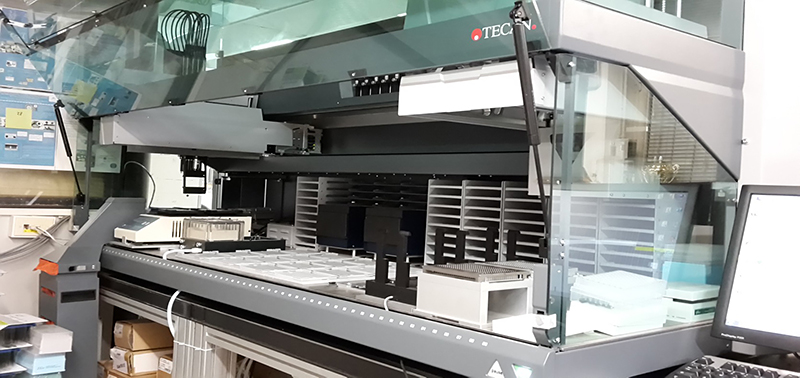 Instrumentation:
Instrumentation:
HTS platform TECAN FREEDOM EVO 200 liquid handler dual harm system - Read more
Next Generation massive parallel Sequencing
The Next Generation Sequencing technologies (NGS) is revolutionizing the molecular biology field of application. Recently the Molecular Biology Service was implemented by such technologies and is developing this facility based on a ION Proton sequencer.
The Next Generation Sequencing facility is based on the ION Proton technology: mainly transriptomics, gene expression analysis, targeted resequencing, metagenomics.
To date no bioinformatic analysis provided.
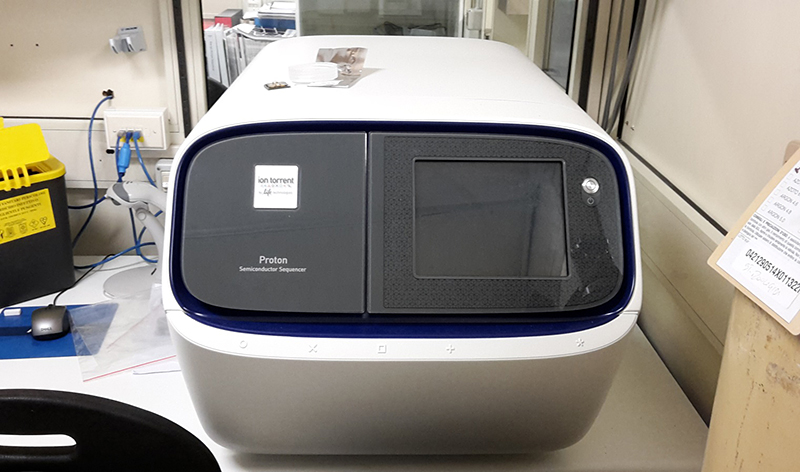 Instrumentation:
Instrumentation:
NGS sequencing platform, ION Proton system, Applied Biosystems - Read more
Moreover the Service offers technical-scientific consultation, training, technical and market survey, comparative tests of new products and protocols and often is involved in scientific and technical-scientific collaborations with laboratories of other Research Institutes and in partnership with companies operating in the Molecular Biology compartment.










